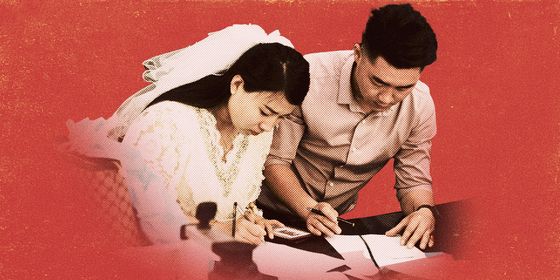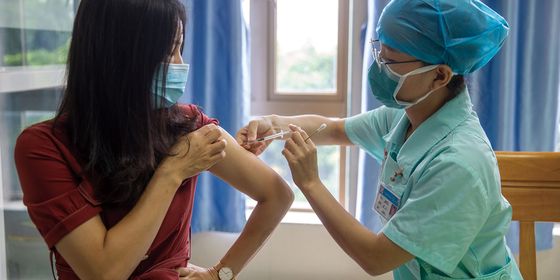Dubious DNA results make a fortune telling fortunes
Genetic screening has its uses: It helped A-list actor Angelina Jolie, for example, determine that she was at a high risk of breast cancer, leading to a preventative mastectomy.
But what genetic screening can’t demonstrate is whether, broadly speaking, your child will have an aptitude for mathematics or sports. Certain specific health problems, yes; but sweeping statements about the future character of an adult? The scientific evidence for such tests was simply “too weak,” concluded 22 experts in genomics and health, who signed a 2015 statement published in the British Journal of Sports Medicine.
That hasn’t stopped a number of Chinese startups from promising parents all manner of details about their child’s genetic future, using legitimate science as embroidery for more fantastic claims—all for a fat fee.
In 2016, Technode, describing China’s “Wild West” of boutique genetic testing, cited 360°Gene, a matchmaking company which claimed to be able to pair its clients with suitable partners via DNA screening; other startups offered tests that would reveal whether a child might suffer from acne, or even have a propensity to smoke.
A report by another company, Genejoy, capitalized on parents’ anxieties by claiming that “60 percent” of parents miss out on educational opportunities because they are not aware of their child’s inherited talents, and thus choose the wrong subjects or developmental periods for educating their child.
“It’s difficult to achieve success if you don’t have the natural talent; sports champions have sports genes, musicians have musical genes, and entrepreneurs have EQ genes. The people who succeed must make the best of his or her dominant potential genes,” the report claims.
Not all these companies are necessarily untrustworthy. Li Ruiqiang, CEO of Beijing-based Novogene, which focuses on bioinformatics research and clinical services, told Sixth Tone that his company would never offer “talent tests,” because they want to focus on results “that are scientifically reliable.”
Other, faced with a choice of established science or suggestive hokum, dabble in both. Take Guangzhou-based DaAn Gene: The company shot into the spotlight after Ran Yingying, a former television presenter and wife of flyweight boxing champion Zou Shiming, posted her son’s genetic test results on Weibo. Among the results of the test—which cost 6,500 RMB—were details of his likely aptitude for music and interpersonal skills.
DaAn Gene, however, isn’t some non-credentialed fly-by-night company; it is affiliated with Sun Yat-sen University and for many years specialized in genetic research. DaAn Gene’s forays into selling test results to the public are a recent one, matching a public demand for a (scientifically dubious)knowledge of the future. In explaining its rationale, DaAn Gene has told media that it has a responsibility to help the public understand genetic testing, from a “simpler” angle.
Part of the reason why companies can make such unfounded claims is lack of regulation. Genetic tests are restricted in terms of clinical applications, so companies need to be careful about the medical implications of their findings, but outside of that caveat, almost anything goes. Including, currently, the modern equivalent of having your palm read.
Testing Grounds is a story from our issue, “Down to Earth.” To read the entire issue, become a subscriber and receive the full magazine.












